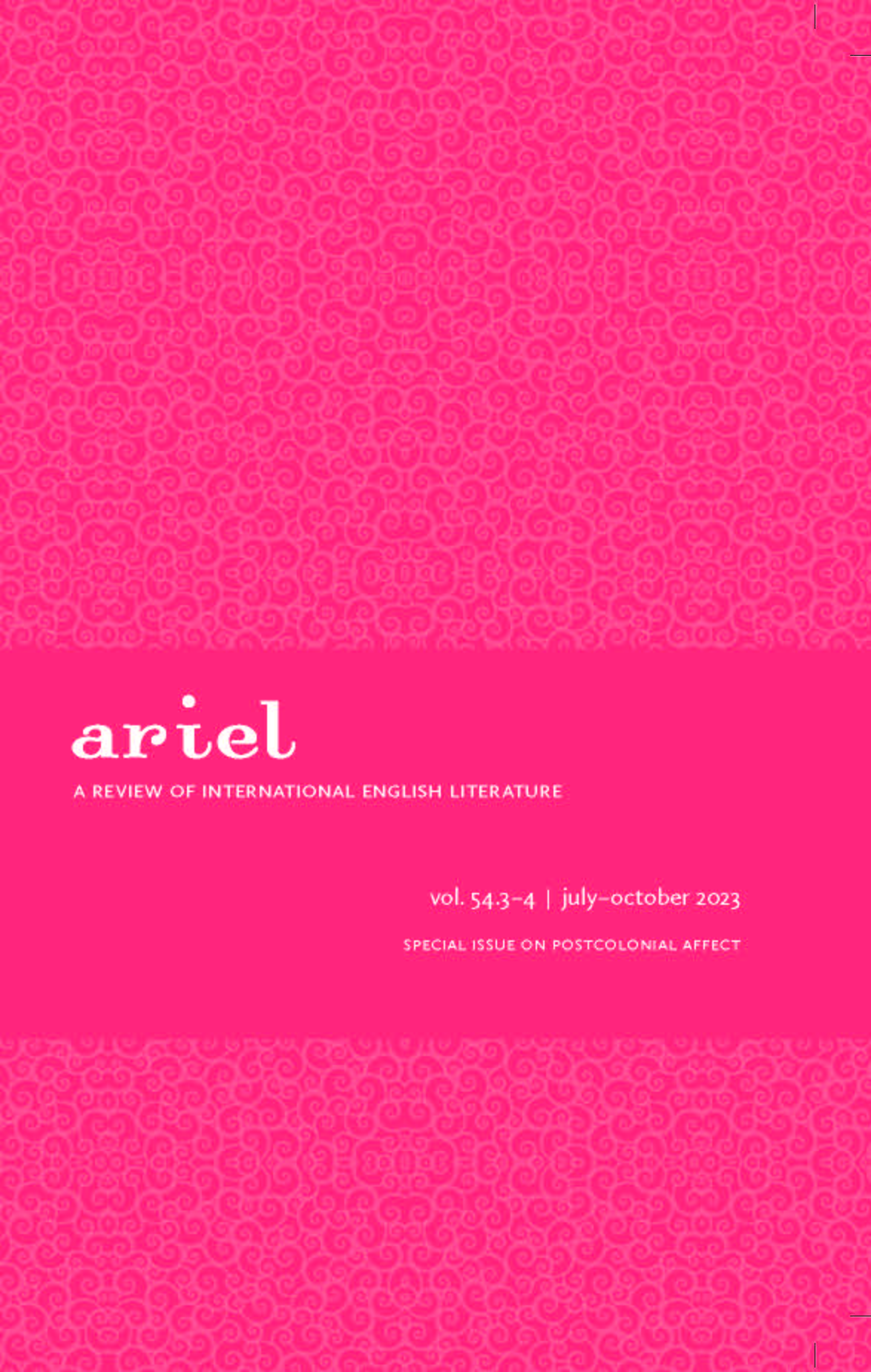Industrial Disease and Postcolonial Affect in Michael Ondaatje’s In the Skin of a Lion
Keywords:
immigrant health, medical humanities, Fanon, Epidermalisation, intergenerational affective labourAbstract
This article offers an intervention on the significance of skin for thinking postcolonial affect by excavating what I term “epidemiological affect” in Michael Ondaatje’s In the Skin of a Lion. Epidemiological affect arises from the worker’s immersion in unclean (and brutalising) industrial environments, and from their co-location within colonial regimes of cleansing that are both racially and hygienically motivated. The skin’s multiple affective placements in damage (invisible yet palpated epidemiological burden), ideation (the felt habitation of symbolic structures), and solidarity (the coming-into-perceptibility of left-wing political consciousness) nonetheless reveals a highly ambivalent process: the transformation of racialised white immigrant identity into assimilation through labour. Ondaatje’s rendering of the affective life of the skin thus follows Achille Mbembe’s recommendation: that to account for postcolonial relations of power—their effectiveness and psychology—we need to go beyond the binary categories (like passivity vs resistance) so frequently deployed in the analysis of domination. Instead, exploitable but eventually assimilable white industrial workers in the novel oscillate between resignation and jouissance: states transacted by their compromising “embrace” of contamination and cleansing and mediated by the text’s aesthetics of submersion and explosion.


